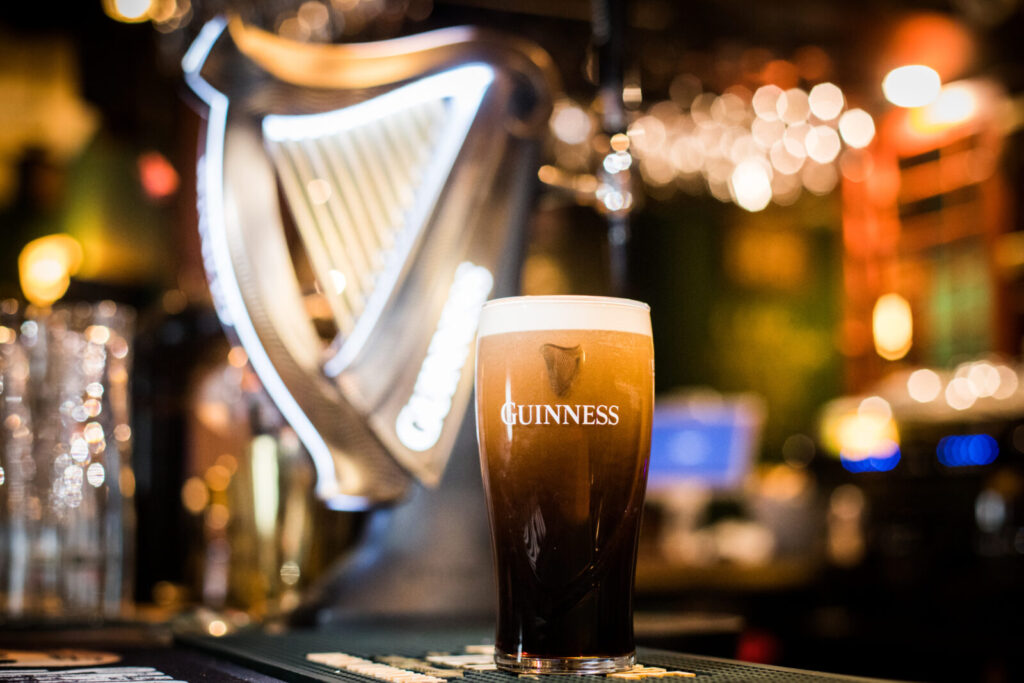Brief • 3 min Read
In The Harris Poll Tracker (Week 113) fielded from April 22nd to 24th, 2022 among 1,996 U.S. adults, we look at how Gen Z and Boomers have different societal concerns about the economy, crime, and racial inequity. We then look at how brands can distinguish their environmental messaging in partnership with Ad Age, how climate change may be contributing to your allergies with HealthDay, the disconnect between healthcare consumers and providers with ZS, and an industry snapshot of homecare products based on our Harris Brand Platform data.
Tune in for our America This Week: From The Harris Poll audio event, this Friday at 10am EST on LinkedIn for a data-driven discussion between our CEO John Gerzema and CSO Libby Rodney. They’ll be covering the latest trends in society, the economy, and the consumer marketplace.
As a public service, our team has curated key insights to help leaders navigate COVID-19. Full survey results, tables, and weekly summaries can be accessed for free at The Harris Poll COVID-19 Portal. We will continue to actively field on a regular cadence to track the shifts in sentiment and behaviors as the news and guidelines evolve.
The Differing Concerns Between Gen Z and Boomers
While there is overall concern about societal stressors like inflation, crime rates, and racial inequity among all Americans, there are, however, distinct generational divides between Gen Z and older Boomers.
- While (62%) of Boomers report being very concerned about the economy, inflation, and jobs, less than half of Gen Z Americans (45%) say they are very concerned.
- Additionally, over 6 in 10 Boomers (62%) are very concerned about crime rates in the U.S., close to double that of Gen Zers who are very concerned (33%).
- However, Gen Z was more likely to be very concerned about racial inequity (48%) than Boomers (30%) – the disparity could be partly attributed to Gen Z being the most racially and ethnically diverse U.S. generation yet.
- And more Gen Z reports being very concerned over affording their living expenses (45%) than their older Boomer counterparts (36%).
Takeaway: Companies should seek to better understand the varied concerns among different aged Americans – especially as it may relate to consumerism and their workforce.
Earth Day Green Messaging: 3 Strategies to Guide Brands: Ad Age-Harris Poll
Environmentalism is a widespread and largely popular movement, so how can brands distinguish their green messaging and connect with consumers who care? In partnership with Ad Age, we surveyed American consumers to uncover the current environmental landscape and discover how brands can stand out.
- The majority of adults (76%) are concerned about the health of the environment and/or the threat of climate change.
- More Americans (80%) believe that corporate sustainability efforts rather than individuals (57%) play a key role in combating climate change.
- Consumers prefer when ads explain what actions a company takes to combat climate change rather than announcing a company’s monetary donation towards environmental efforts.
- Almost 1 in 5 Americans said that they would be less likely to support a brand that ran ads focusing on humans’ negative impact on the environment.
Takeaway: According to Harris Poll CEO Will Johnson, “Not only do big corporations have the standing to talk about the environment—it would behoove them to, as more than three-quarters of U.S. adults say that they would think more highly of brands that act to protect the environment.”
Worsening Allergy Seasons: Is Climate Change to Blame?: HealthDay-Harris Poll
Global warming is likely to cause longer and more severe allergy seasons as increased temperatures and CO2 result in larger plants and greater pollen production. Partnering with HeathDay we surveyed 2,000 U.S. adults on their experience with seasonal allergies.
- Between (10 to 30%) of the world’s population suffers from seasonal allergies, and the percentage is increasing.
- By 2018, pollen counts were (20%) higher than in 1990, and by 2100, pollen emissions could increase by up to (40%).
- Almost three-quarters (74%) of allergy sufferers say symptoms negatively impact their overall quality of life.
- More than (70%) of allergy sufferers say symptoms prevent them from getting a good night’s rest.\
- About half of allergy sufferers agreed with a series of allergy-related statements, including: “I feel like my seasonal allergies are getting worse every year.”
Takeaway: Kathy Steinberg, vice president at the Harris Poll said, “Other points in the survey suggest that the situation is only going to get worse.” With climate change likely worsening the length and severity of allergy season, tackling global warming could be the answer to halt this trend.
The Disconnects Stalling Connected Healthcare: ZS-Harris Poll
While the healthcare industry has become increasingly digitized, significant disconnects remain, negatively impacting both patients and providers. In our latest survey, in partnership with ZS, we examine the path to connected healthcare and how companies can develop a solution.
- While (80%) of primary care providers think their patients feel cared for, only (42%) of U.S. adults report feeling cared for by their doctors.
- The majority (79%) of U.S. adults would regularly share vital sign data with a healthcare provider if this information was used to improve their health.
- About one-third of healthcare consumers use connected options, including online health portals (38%), health tracking devices (29%), and telehealth options (23%).
- While (73%) of consumers would like to access healthcare anytime, only (56%) of doctors agree.
Takeaway: Healthcare consumers and providers agree that a more connected healthcare system would allow for increased direct communication, improved diagnoses, earlier detection of health issues, and overall improved community health.
Home Care & Products: An Industry Snapshot
Our recent report on the state of the home care industry explores consumer sentiment towards pet food purchases, cleaning habits, and mattress-in-a-box brand Purple’s growth. Using Harris Brand Platform data, we rank the leading home care brands by equity and growth. Here’s what we found:
- Fifty-three percent of Millennial pet owners purchased pet food made from natural ingredients, 34% purchased organic pet foods, 31% purchased CBD pet products, and 18% purchased food for alternative diets (e.g., vegan, raw).
- Men (39%) reported more often than women (27%) that they purchased specialty food products to treat their pets.
- Twenty-seven percent of U.S. adults say that the features they look for in a cleaning product have changed because of the COVID-19 pandemic.
- Clorox topped the list of home care brands, with a brand equity score of 70.1%, while Pedigree pet food saw the greatest brand equity growth (4.4%) among home care brands from Q4 2021 to Q1 2022.
Takeaway: Americans’ home care needs and preferences evolved during the COVID-19 pandemic. Brands must understand shifting consumer priorities to effectively develop and market products to distinct consumer segments.
Subscribe for more Insights
Subscribe to our newsletter for the latest trends in business, politics, culture, and more.
Download the Data
This survey was conducted online within the U.S. by The Harris Poll from April 22 to 24, among a nationally representative sample of 1,996 U.S. adults.
Download
Subscribe for more Insights
Subscribe to our newsletter for the latest trends in business, politics, culture, and more.
Download the Data
This survey was conducted online within the U.S. by The Harris Poll from April 22 to 24, among a nationally representative sample of 1,996 U.S. adults.
DownloadRelated Content








